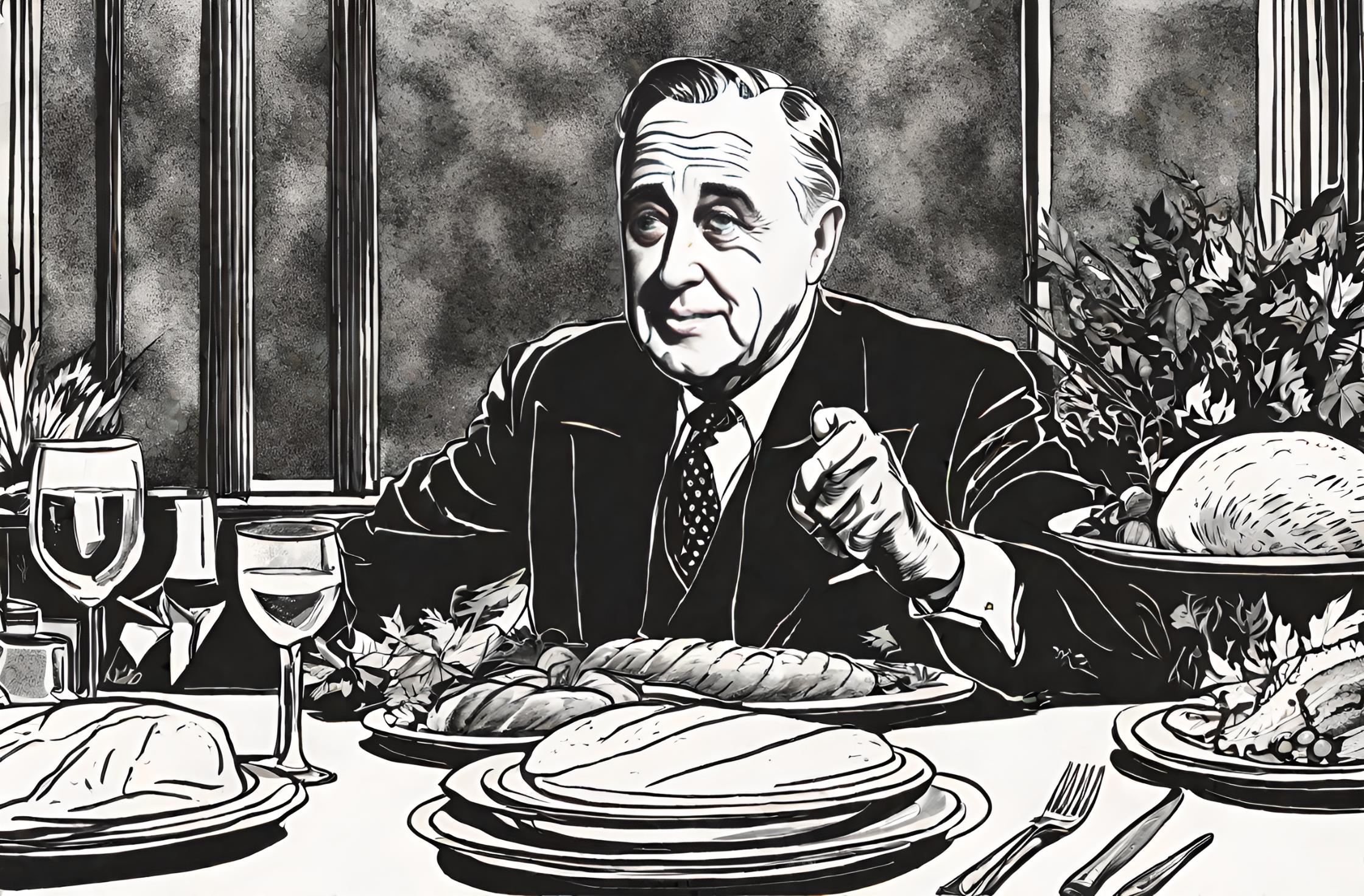Flashback to January 3
American History

1941
US President Franklin Roosevelt signs a bill officially establishing the fourth Thursday in November as Thanksgiving Day
Read moreOn November 26, 1941, US President Franklin Roosevelt made an impactful decision that still resonates in every home in America today. He signed a bill that officially established the fourth Thursday in November as Thanksgiving Day — the national holiday that involves family gatherings and feasts across the country.
During this time, President Roosevelt was known for his New Deal policies, designed to help the country recover from the Great Depression. His decision to set in law the date of Thanksgiving further highlighted his commitment to unity and national celebration. As such, this significant event in American history constitutes an essential part of our collective cultural heritage.
Thanksgiving had long been celebrated before 1941, but it wasn’t set in law. President Abraham Lincoln had declared it a national holiday during the Civil War, proclaiming the last Thursday in November as a day of thanksgiving. However, the date had not been fixed, allowing each President to declare Thanksgiving on any date they saw fit. That all changed when Franklin Roosevelt, in his signature energetic style, cemented the tradition that we follow till today.
This decision was also made in response to a fluctuating calendar that sometimes saw November having five Thursdays. Roosevelt was strongly lobbied by retailers who saw an opportunity to extend the holiday shopping season if Thanksgiving was pushed earlier. This lobbying led to what some might consider being one of the earliest examples of political power wielded by retailers – another intriguing facet to the story of Thanksgiving.
While the debate over commercialism continues to this day, the historical and cultural significance of Thanksgiving is undeniable. More than just turkey, cranberry sauce, and pumpkin pie, Thanksgiving symbolizes an American tradition – a tradition of unity, humility, and gratitude. It’s a time when friends and family gather to give thanks for the blessings and bounty of the past year, a tradition that was officially recognized and enshrined into the law by Franklin Roosevelt on that November day.
For fans of history, this event is rich with educational opportunities. Teachers can use the passing of this bill as a lesson on the effects of political decisions on cultural traditions and the power that lobbies and interest groups can have in shaping national policy. Insight into President Roosevelt’s leadership style can be gleaned from this instance, pointing to a governance style that was responsive to the needs of the people and the economy.
Today, we can appreciate the foresight of President Roosevelt. His decision in 1941 ensures that every year, millions of Americans come together to celebrate, no matter what day the fourth Thursday of November falls on. Because of Roosevelt’s signature, the Thanksgiving we know today is securely part of American tradition, lining the tables of families across the country with turkey, stuffing, and pumpkin pies, and filling houses with warmth, love, and a spirit of gratitude.
the event of President Franklin Roosevelt signing the bill to establish the fourth Thursday of November as Thanksgiving Day is monumental. It highlights an aspect of American culture that persists decades after Roosevelt’s tenure in the office. It’s a testament to the significant influence and foresight of one man’s decision to officialize a day for unity, gratitude, and celebration of the year’s bounties. This day continues to bring together families across the nation, imbued with a sense of shared national identity.
We strive for accuracy. If you see something that doesn't look right, click here to contact us!
Sponsored Content

First patent list issued…
On January 3, 1872,…

Admissions convention meets in…
The Admissions convention, held…

Lost in Yonkers closes…
The Tony Award-winning play,…

Twelve dead coal miners…
On January 3, 2006,…

